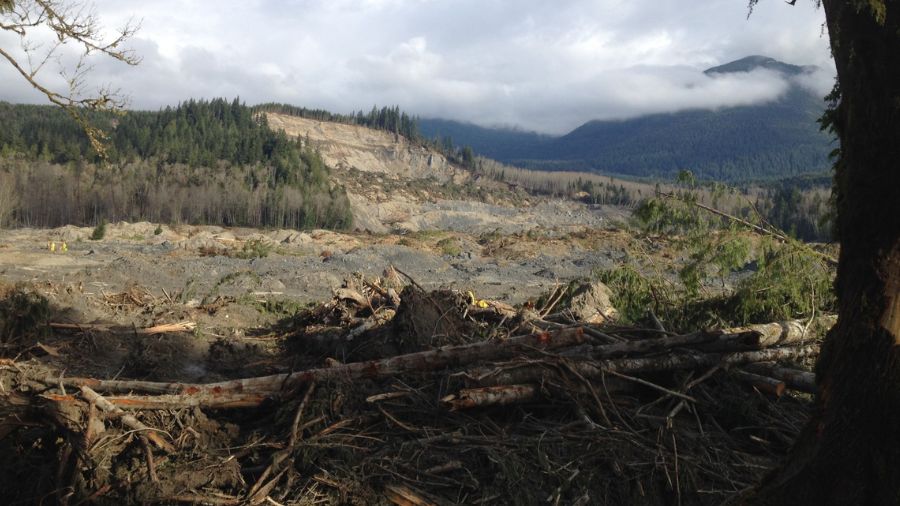State senator calls for Legislature to investigate Custer train derailment
Jun 11, 2021, 5:15 AM

A train derailment in Custer, Wash. in December of 2020. (Photo courtesy of the state Department of Ecology)
(Photo courtesy of the state Department of Ecology)
After experts came forward stating that last winter’s oil train derailment in Custer was likely sabotage because of the way in which the train malfunctioned, the state senator representing the area is calling on the Legislature to investigate.
Sen. Doug Ericksen (R-Ferndale) told KIRO Radio he also wants lawmakers to increase penalties for train saboteurs to prevent future acts of what he calls “environmental terrorism.”
“I think it’s the Legislature’s duty to dig into the facts and to find out what’s going on … so that we can take proper action as a Legislature, number one, to condemn these types of activities, and number two, to look at legislation that might be necessary in the 2022 Legislative session to get tough on these types of actions,” he said.
No one was injured in the derailment, which saw seven of the train’s 108 cars overturn. Five cars caught fire, and 29,000 gallons of crude oil — about the equivalent of what one rail car carries — spilled.
Train carrying crude oil derails, catches fire in Whatcom County
The December derailment happened after a year that had seen dozens of acts of attempted rail sabotage in Whatcom and Skagit Counties in protest of oil and coal trains on their way to the Ferndale Refinery. In November, two people were arrested for allegedly placing shunts on train tracks in Bellingham, which can turn off certain rail safety features.
“I am very concerned about this activity and the impacts it’ll have on the economy, but also the impacts it’ll have on human life, if we don’t act strongly, and with one common voice say, ‘This is not acceptable in Washington state,'” Ericksen said, adding, “We need to come together as a state, as a region, as a people, to say that these types of terrorism are not fine here.”
He especially wants to see stronger punishments for rail sabotage — and not just for those placing the shunts on the tracks, but also for the organizers who hold the power and purse strings.
“I think it could be tougher penalties in Washington state — longer sentences, higher fines,” he said. “But the other key thing is not to just go after the people who … actually hurt the tracks, but to go after those people who are encouraging them, or facilitating, or providing those people with the payment and means to be able to do it.”
The Department of Ecology has said that the derailment fortunately caused only minimal environmental consequences, with the oil contained in a sort of natural basin, away from bodies of water that it could have infiltrated. However, the location of the derailment just makes Ericksen all the more suspicious that it was sabotage.
“If people were looking to for a place to do this that would not have environmental damage but definitely have economic damage, they definitely found a good location to do it,” Ericksen said.
Law enforcement has refused to speculate on the cause of the train derailment. The FBI is currently in the middle of an investigation, along with the National Transportation Safety Board and the Federal Railroad Administration.













